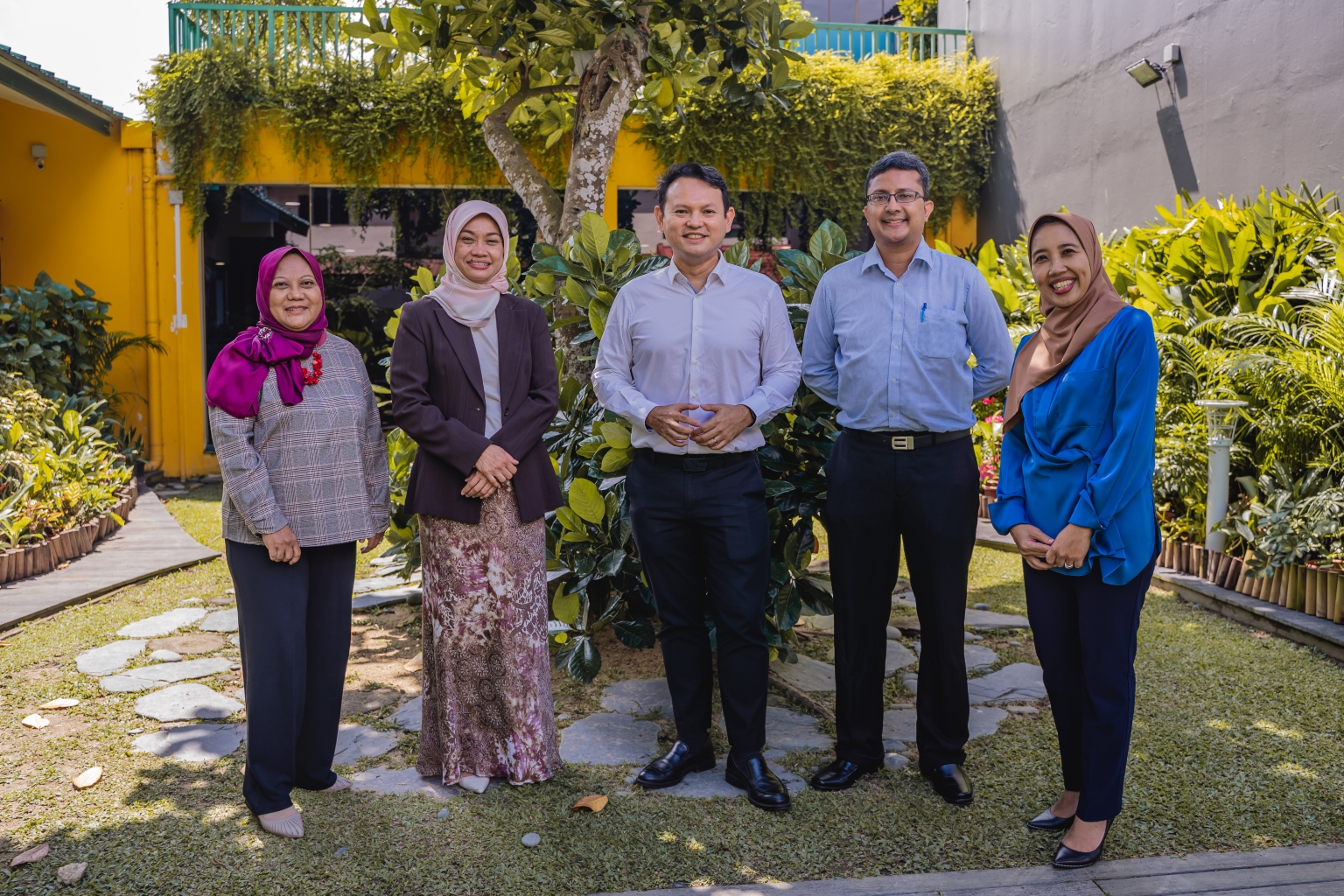$45m in tertiary tuition fee subsidies given to over 11,000 students in 2021: Mendaki
Sign up now: Get ST's newsletters delivered to your inbox

Mr Zaqy Mohamad (centre) after Yayasan Mendaki's annual general meeting at Wisma Mendaki.
PHOTO: BERITA HARIAN
Follow topic:
SINGAPORE - More than 11,000 students in the Malay/Muslim community received tertiary tuition fee subsidies totalling $45 million from Yayasan Mendaki last year, equalling the record sum given out in 2020, when over 10,000 students got a boost.
They are among the more than 73,000 who benefited from Mendaki programmes and services, an increase of 4 per cent over the number who received help in 2020.
"That's very good, considering that we were facing a pandemic and we had a lot of (safe management measures) in place," said Mr Zaqy Mohamad, deputy chairman of Mendaki's board of directors.
"We thought with heightened safe management measures... (we'd be) limited in terms of (our) outreach."
Mr Zaqy, who is also Senior Minister of State for Manpower and Defence, was speaking at a media conference on Saturday (June 18) after Mendaki's annual general meeting, and provided updates on the self-help group's impact last year.
Responding to a question, Mr Zaqy said the money disbursed for subsidies could have remained the same despite the higher number of beneficiaries because the group adopted a tiered system to determine the respective sums to be distributed.
Eligible Malay students pursuing their first diploma or degree at local government tertiary institutions qualified for a 50 per cent, 75 per cent or full subsidy of their tuition fee, depending on their household income per capita.
"So to some extent we have more beneficiaries, but not necessarily higher amounts," he said, noting that the continued impact of the Covid-19 pandemic on household incomes also meant some students who previously would not have qualified for the scheme were eligible last year.
Mr Zaqy also said that the large number of beneficiaries Mendaki supports provides a rich source of data to tap for analytics, and helps it make programmes more effective.
It was also an impetus for Mendaki to form a Programme Evaluation Office last year to concentrate its research efforts.
"We are focusing on research, we are focusing on use of data because if you look at the number of beneficiaries... it is quite a big sample size you can track over time," he said.
"We build this research capability now, so we can better understand trends."
Topics under research include employability in the Malay/Muslim community, as well as predictors of success in Mendaki's tuition scheme. Detailed results of the tuition scheme are slated to be released later this month.
Already, Mr Zaqy said analytics had vindicated Mendaki's existing schemes, like the effectiveness of KelasMateMatika - a programme that teaches pre-school kids numeracy skills and mathematics coaching skills to their parents to ease children’s transition to Primary 1.
The programme grew in size from about 100 participants in its 2018 pilot to almost 3,600 last year, the first time the programme was conducted virtually.
Analytics revealed that the programme effectively prepared over 80 per cent of pupils for Primary 1 in its latest, much larger, iteration, as they did not require learning support upon entering primary school.
On Saturday, Mendaki also unveiled four fresh faces elected into its board of directors.

They are Mr Muhammad Fadhlullah Daud, 35; Mr Muhammad Syahiran Rohajat, 34; Mr Nassar Mohd Zain, 39; and Ms Yeo Nadia, 36.
They replace four outgoing directors: Mr Fazli Mansor, 38; Mr Halil Haji Mansor, 57; Dr Mustafa Izzuddin, 42, and Ms Nur Hani Nasir, 31.

